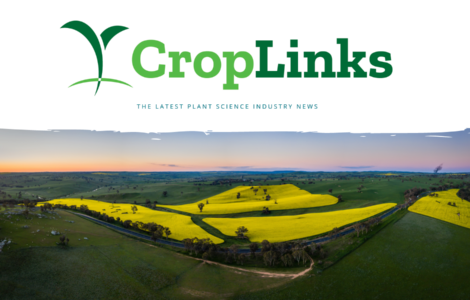Keeping the Barrier Reef great
8 December 2020
The Great Barrier Reef is a spectacular, fragile and important World Heritage Area contributing over $5 billion annually to the Australian economy.
Recent inquiries examining the relationship that agricultural inputs such as pesticides have with the Reef, highlights the importance of stewardship initiatives for agricultural chemical products.
Stewardship programs ensure agricultural chemicals are being used responsibly and safely, and containers are recycled. This is important to avoid and minimise any off-target impacts on environments such as the Great Barrier Reef.
The final report from the Senate Inquiry into the Identification of leading practices in ensuring evidence-based regulation of farm practices that impact water quality outcomes in the Great Barrier Reef, identifies leading examples by the agriculture industry and encourages other input sectors to take inspiration and lessons from the pesticide industry for the best way to achieve environmental outcomes.
There is no question that crop protection products are crucial to modern integrated pest management techniques and systems used by farmers. Australian farmers need access to these innovations so they can continue to produce high-quality products that feed and clothe our nation, and meet our export responsibilities while protecting the health of users, consumers and the environment.
As highlighted in the report, the detection of a pesticide in an environment does not necessarily mean that a chemical would be posing a risk to the environment. Rather, risk is a product of the level of exposure through a component’s concentration levels and duration of exposure.
CropLife and our members have a long history of working with governments, growers and farmer groups to deliver training programs and formal stewardship initiatives to ensure best practice and focus on continual improvement when it comes to agricultural chemicals.
Agsafe, CropLife’s wholly-owned training organisation, facilitates waste management recycling collection programs, drumMUSTER for empty product containers and ChemClear® for obsolete or unwanted chemicals.
Across Australia these programs have collected and disposed of more than 36 million plastic chemical containers and 750,635 litres of obsolete or unwanted chemical. An impressive 38,000 tonnes have been recycled into re-usable products.
Agsafe has worked closely with the Queensland Government during natural disasters such as flooding to minimise the impact these natural disasters have on the Reef and prevent unintended pollution of the Reef during these times.
Global warming, and the climate change it drives, is the most serious and pervasive threat to the Reef. The updated Reef 2050 Long-Term Sustainability Plan focuses on the recognition of the long-term systematic threat that climate change presents.
As well as a commitment to reduce the state’s carbon emissions by 30 per cent by 2030 and achieve zero net emissions by 2050, the Queensland Government has set a goal to strengthen collaboration and engagement with the scientific research sector. This will drive evidence-based technology and innovative solutions to mitigate the impacts of climate change on the Reef. Agricultural biotechnology is one of the tools governments must embrace to meet both these goals.
GM traits in development will assist farmers to combat drought, soil acidity and/or salinity, as well as emergent diseases. GM sugarcane is being developed by Australian and international research organisations and companies, including the University of Queensland and the CSIRO. Once available, these varieties will help improve water use efficiency and yield, while also improving profitability and sustainability by reducing input costs, like pesticides, due to varieties being resistant to pests and diseases.
Further support in this exciting field of research will ensure farmers have access to innovative new technologies for producing high-quality food, feed and fibre for Australia and the world while continuing to reduce the agricultural carbon footprint across the Reef catchment area.
* ISAAA (2019): Global Status of Commercialized Biotech/GM Crops in 2018: Biotech Crops Continue to Help Meet the Challenges of Increased Population and Climate Change. ISAAA Brief No. 54.
